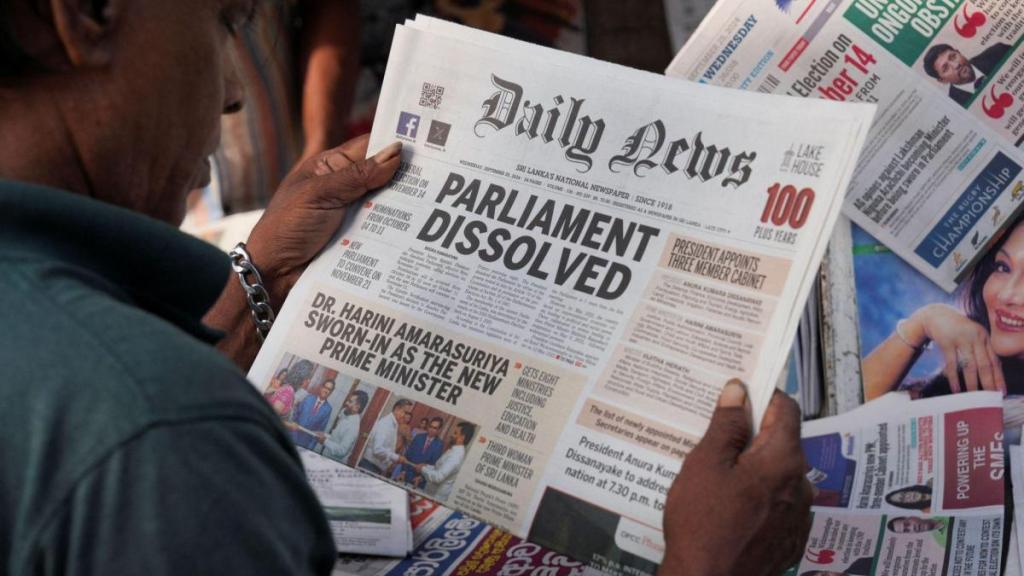Sri Lanka’s newly elected President Anura Kumara Dissanayake dissolved Parliament late Tuesday, calling for a parliamentary election on November 14. The move comes just days after his weekend victory in the presidential election, as Dissanayake seeks to consolidate power in the 225-member Parliament, where his party currently holds only three seats.
The dissolution of Parliament, effective at midnight on Tuesday, was widely anticipated. Dissanayake had pledged during his campaign to call an early election to reshape the political landscape. By doing so, he hopes to leverage his post-election popularity and gain control of the legislative body.
In a significant development, Dissanayake appointed Harini Amarasuriya, a 54-year-old university lecturer and activist, as Sri Lanka’s new prime minister. Amarasuriya, a member of Dissanayake’s Marxist-leaning National People’s Power (NPP) coalition, becomes the country’s first female head of government in 24 years.
Dissanayake’s victory over former President Ranil Wickremesinghe and opposition leader Sajith Premadasa reflects Sri Lankans’ rejection of the traditional political elite, who are widely blamed for the nation’s severe economic crisis. However, Dissanayake’s lack of a parliamentary majority limits his ability to form a full Cabinet.
Amarasuriya will also oversee the ministries of justice, health, women, trade and industries, while another key NPP member, Vijitha Herath, was assigned six critical portfolios, including foreign affairs, transport, public security and environment.
Dissanayake’s immediate challenge lies in addressing the severe austerity measures imposed by his predecessor, Wickremesinghe, under an International Monetary Fund relief agreement, following Sri Lanka’s default on its debt. The upcoming election is crucial for Dissanayake as he strives to implement his campaign promises and stabilize the country’s economy.

